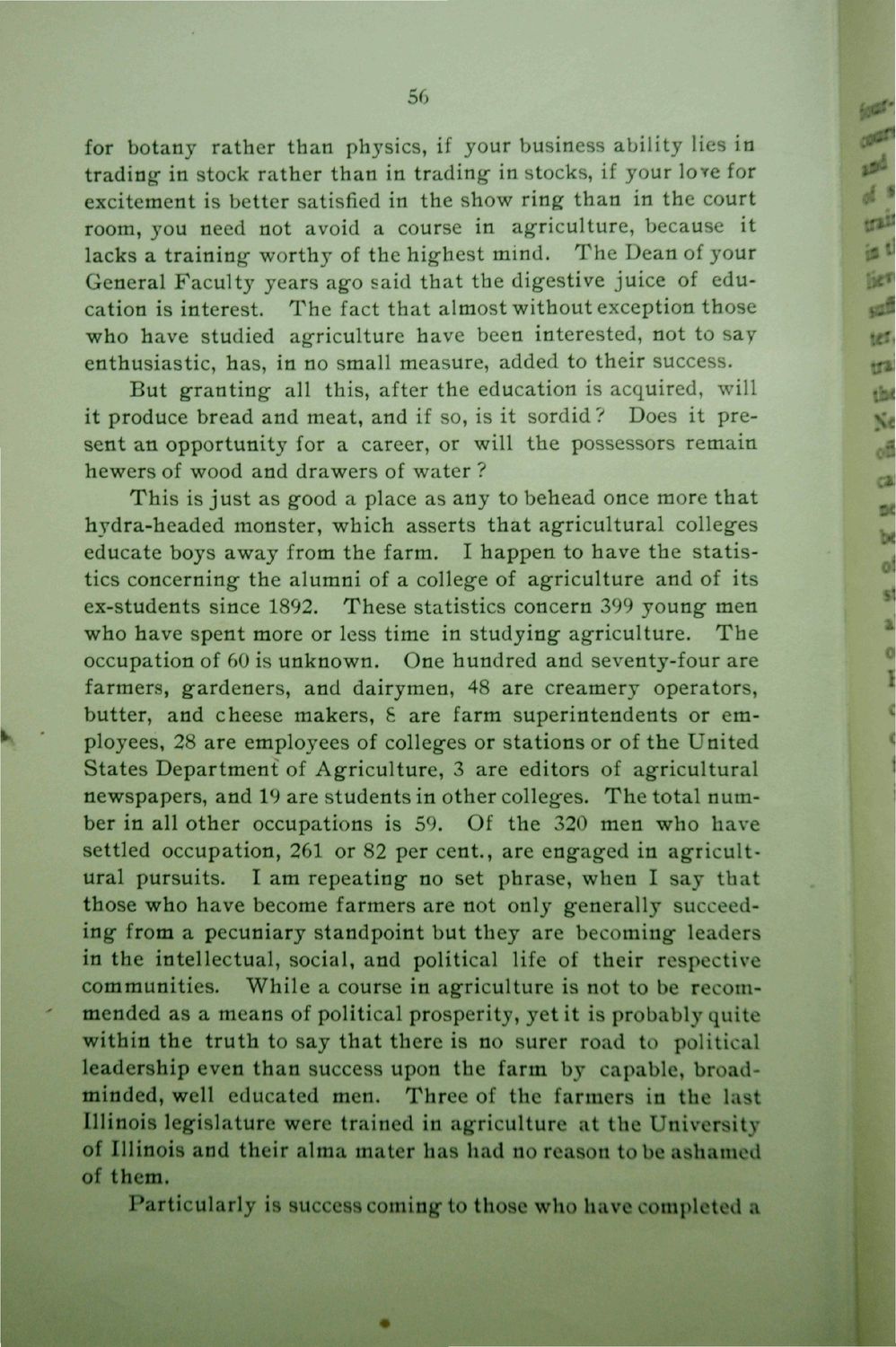| |
| |
Caption: Dedication - Ag Building
This is a reduced-resolution page image for fast online browsing.

EXTRACTED TEXT FROM PAGE:
56 for botany rather than physics, if your business ability lies in trading1 in stock rather than in trading" in stocks, if your lo*e for excitement is better satisfied in the show ring than in the court room, you need not avoid a course in agriculture, because it lacks a training* worthy of the highest mind. The Dean of your General Faculty years ago said that the digestive juice of education is interest. The fact that almost without exception those who have studied agriculture have been interested, not to say enthusiastic, has, in no small measure, added to their success. But granting all this, after the education is acquired, will it produce bread and meat, and if so, is it sordid? Does it present an opportunity for a career, or will the possessors remain hewers of wood and drawers of water ? This is just as good a place as any to behead once more that hydra-headed monster, which asserts that agricultural colleges educate boys away from the farm. I happen to have the statistics concerning the alumni of a college of agriculture and of its ex-students since 1892. These statistics concern 399 young men who have spent more or less time in studying agriculture. T h e occupation of 60 is unknown. One hundred and seventy-four are farmers, gardeners, and dairymen, 48 are creamery operators, butter, and cheese makers, 8 are farm superintendents or employees, 28 are employees of colleges or stations or of the United States Department of Agriculture, 3 are editors of agricultural newspapers, and 19 are students in other colleges. The total number in all other occupations is 59. Of the 320 men who have settled occupation, 261 or 82 per cent., are engaged in agricultural pursuits. I am repeating no set phrase, when I say that those who have become farmers are not only generally succeeding from a pecuniary standpoint but they are becoming leaders in the intellectual, social, and political life of their respective communities. While a course in agriculture is not to be recommended as a means of political prosperity, yet it is probably quite within the truth to say that there is no surer road to political leadership even than success upon the farm by capable, broadminded, well educated men. Three of the farmers in the last Illinois legislature were trained in agriculture at the University of Illinois and their alma mater has had no reason to be ashamed of them. Particularly is success coming to those who have completed a «
| |